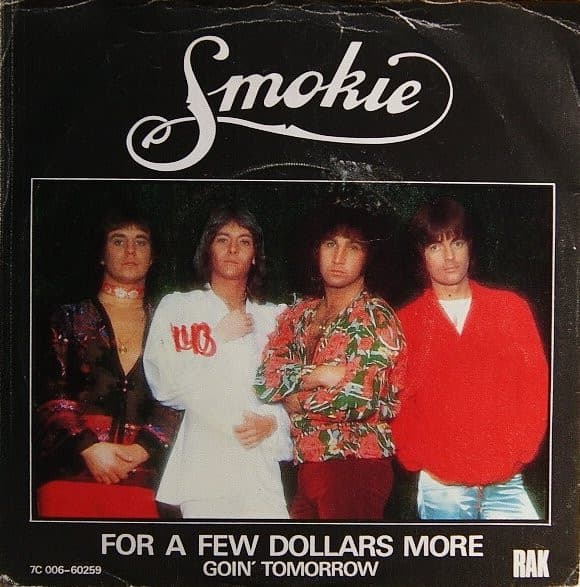
The High Price of Empty Dreams: A Cautionary Tale of Materialism
Remember the late 1970s? The airwaves were brimming with diverse sounds, and amidst the disco beats and punk’s raw energy, there was a distinctive melodic rock sound that resonated with many of us. That sound belonged to Smokie, and one of their standout tracks that still echoes in our memories is “For a Few Dollars More.” Released as a single in January 1978, this song painted a vivid picture of ambition, disillusionment, and the relentless pursuit of more, much like the iconic Spaghetti Western film from which it borrows its evocative title. While its chart performance might vary slightly depending on the specific national chart, in the UK, it reached a respectable No. 17 on the Official Singles Chart, a testament to Smokie’s consistent appeal and the song’s catchy, yet poignant, message. “For a Few Dollars More” was also featured on their 1978 album, The Montreux Album, showcasing the band’s signature blend of melodic rock and storytelling.
The story behind “For a Few Dollars More” isn’t tied to a specific biographical event of the band members, but rather to the genius songwriting duo of Nicky Chinn and Mike Chapman. These two were hitmakers, responsible for crafting many of Smokie’s most memorable tunes, and they had a knack for weaving compelling narratives into catchy melodies. While the title immediately brings to mind the Clint Eastwood Western, the song’s lyrics take a different path, exploring the internal landscape of someone trapped by their own desires. It delves into the psyche of a “rich girl” who, despite having seemingly everything, is always craving “a few dollars more.” The narrative arc is one of escalating emptiness, where material gain fails to fill a deeper void.
The true meaning of “For a Few Dollars More” lies in its biting critique of materialism and the unending, often destructive, quest for more wealth and external validation. The “rich girl” character is a metaphor for anyone caught in this trap, where possessions and status become a substitute for genuine happiness and connection. The lyrics paint a picture of someone who “buys her dreams” and lives in a “rich world behind the scenes,” yet her “green eyes… tell it all” – a hint at envy, perhaps, or a constant hunger. The repeated refrain, “She’ll cry just a little for a few dollars more / She’ll lie just a little like she’s done it before / She’ll take it, she’ll fake it for a few dollars more / She’ll show you her heart, then show you the door,” vividly illustrates the manipulative and ultimately unfulfilling cycle of her life. It’s a stark warning that chasing wealth above all else leads to a hollowness, a perpetual state of “never got enough.” For those of us who have witnessed the allure and pitfalls of material pursuits over the years, this song serves as a powerful, almost nostalgic, reflection on what truly matters.
Chris Norman’s distinctive, slightly husky lead vocals are undeniably the heart of Smokie’s sound, and in “For a Few Dollars More,” his delivery is perfectly suited to the song’s cynical yet sympathetic tone. There’s a certain world-weariness in his voice that gives weight to the lyrics, making the listener believe the story he’s telling. He’s not just singing words; he’s embodying the observation of someone trapped by their desires. The band’s signature harmonies, a staple of their sound, provide a lush, melodic backdrop, softening the sharp edges of the lyrical critique just enough to make it universally appealing. The catchy guitar riffs and solid rhythm section drive the song forward, giving it that classic Smokie energy that made them so popular on radio stations across Europe and beyond.
“For a Few Dollars More” remains a potent reminder of the dangers of insatiable desire. It’s a song that, decades later, still resonates with a timeless message, perhaps even more so in our increasingly consumer-driven world. For those of us who remember Smokie from our younger days, it brings back memories of simpler times, yet it also carries a profound philosophical weight. It prompts reflection on our own values and what we truly seek in life, far beyond the fleeting satisfaction of “a few dollars more.” It’s a true classic, a melodic cautionary tale that continues to hum in the background of our thoughts, long after the final notes fade.